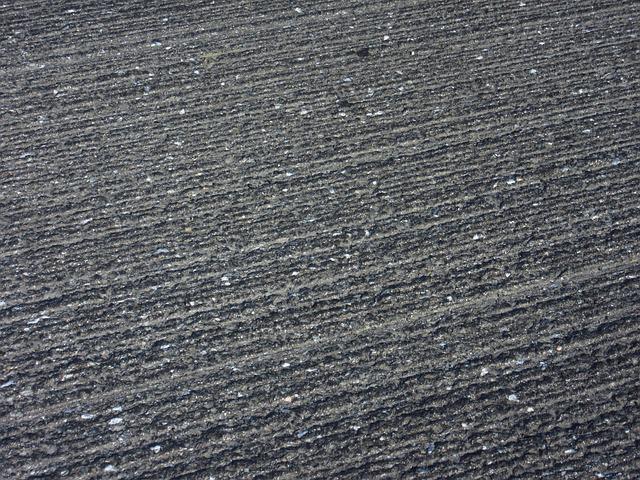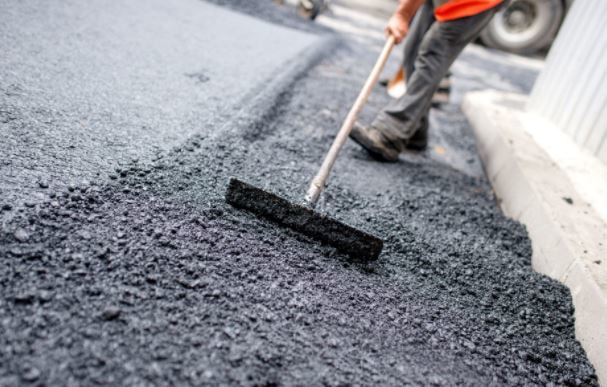The Complete Guide for How Long Does It Take to Pave a Concrete Driveway?
Paving a concrete driveway is an excellent investment for homeowners looking to add durability, aesthetics, and long-term value to their property. Concrete is renowned for its strength, longevity, and low maintenance. However, one of the first questions homeowners ask when considering this project is: how long does it take to pave a concrete driveway?
Several factors impact the timeline of this project, from the planning stage to the final curing of the concrete. This comprehensive guide will walk you through each phase of paving a concrete driveway, discuss how long each phase takes, and what to expect along the way.
For professional assistance in paving your concrete driveway, you can trust Commonwealth Paving. Call us at +1 502 459 7283 or visit our location at 136 Outerloop, Louisville, Kentucky 40214. Our team of experts will ensure your driveway is completed with precision and efficiency.
Key Factors That Affect the Time to Pave a Concrete Driveway
Before diving into the step-by-step process, it’s important to understand the key factors that can affect how long it takes to pave a concrete driveway. These include:
- Driveway Size: Larger driveways naturally take more time due to the increased area that needs preparation and paving.
- Driveway Design: Complex or curved designs will require more time to execute than straightforward, rectangular layouts.
- Subgrade Condition: If the soil or base material beneath the driveway is not suitable, additional time will be required for excavation, grading, or base installation.
- Weather Conditions: Weather is a major factor in paving a concrete driveway, as both rain and extreme temperatures can cause delays.
- Curing Time: Concrete needs time to cure after it has been poured. During this time, it cannot be used or exposed to heavy traffic.
These factors can add or reduce days to the overall project timeline. Now let’s take a closer look at each step in the process and estimate how long each phase typically takes.

Step-by-Step Breakdown of Paving a Concrete Driveway
1. Planning and Design (1 to 2 Weeks)
The first step in the driveway paving process is planning and designing the driveway. During this phase, you will need to choose the layout, size, and any decorative elements you’d like to include. You will also need to determine if any permits are required in your local area for driveway construction.
- Site Evaluation: An expert from Commonwealth Paving will visit your property to assess the area, recommend the best design, and take measurements.
- Permitting: Depending on your location, you may need to secure permits for driveway construction, which can take anywhere from a few days to two weeks.
The planning and permitting phase typically takes 1 to 2 weeks, depending on local regulations and the complexity of your design.
2. Site Preparation and Excavation (1 to 3 Days)
Once the planning is complete, the next phase is preparing the site. This step is crucial for ensuring the longevity and durability of your driveway. If the ground is not properly prepared, the concrete may shift or crack over time.
- Clearing the Site: Any existing driveways, grass, or debris must be removed to make way for the new concrete driveway.
- Excavation: The site is excavated to the necessary depth, which is typically about 6 to 8 inches deep for a standard driveway. If the soil is soft or unstable, deeper excavation may be required to ensure a firm base.
- Grading: The land is graded to ensure proper water drainage. Poor drainage can lead to water pooling, which can damage the concrete over time.
Site preparation typically takes 1 to 3 days, depending on the condition of the ground and the size of the driveway.
3. Installing the Base (1 to 2 Days)
After the site has been excavated, a base material, typically gravel or crushed stone, is installed. The base layer provides the foundation for the concrete and helps prevent shifting or settling.
- Spreading the Base Material: Gravel or crushed stone is spread evenly across the excavated area, usually to a depth of 4 to 6 inches.
- Compacting the Base: A compactor is used to firmly press the base material, creating a stable and level surface for the concrete.
This phase usually takes 1 to 2 days, depending on the size of the driveway and the type of base material used.
4. Installing Forms and Reinforcement (1 Day)
Before pouring the concrete, forms need to be set up around the edges of the driveway. These forms are usually made of wood or metal and act as a mold for the concrete. Additionally, reinforcement materials such as rebar or wire mesh are installed to add strength to the concrete and prevent cracking.
- Setting the Forms: Wooden or metal forms are placed around the perimeter of the driveway to hold the concrete in place while it cures.
- Reinforcement: Rebar or wire mesh is laid within the forms to provide added strength to the concrete, especially for driveways that will bear heavy loads.
This phase typically takes 1 day to complete.
5. Pouring the Concrete (1 to 2 Days)
Once the forms and reinforcement are in place, it’s time to pour the concrete. This is the most crucial phase of the process, as proper pouring and leveling ensure a smooth, durable surface.
- Mixing and Pouring: The concrete is mixed and poured into the forms. It’s important to pour the concrete evenly and spread it using rakes or shovels.
- Leveling and Finishing: After the concrete is poured, a screed board is used to level the surface. Once leveled, the concrete is finished using a trowel or brush to create a smooth or textured surface, depending on your preference.
For most residential driveways, the pouring process takes 1 to 2 days, depending on the size of the driveway.
6. Curing Time (5 to 7 Days)
After the concrete is poured and finished, it needs time to cure properly. Curing allows the concrete to harden and reach its maximum strength. During this phase, it’s important to avoid driving or walking on the surface.
- Initial Curing: The concrete will begin to harden within the first 24 hours, but it will take at least 5 to 7 days before it is strong enough to handle light foot traffic.
- Full Curing: Full curing takes about 28 days. During this time, you should avoid parking heavy vehicles on the driveway to prevent indentations or damage.
While the physical installation may only take a few days, the curing process extends the timeline significantly. Plan to wait at least a week before using your driveway for everyday activities.
7. Sealing and Final Touches (1 to 2 Days)
Once the concrete has cured, you may want to seal the driveway to protect it from water, UV rays, and stains. Sealants help extend the life of your concrete driveway by preventing cracks and other damage.
- Applying the Sealant: A concrete sealant is applied using a brush, roller, or sprayer. This step is optional but highly recommended to protect your investment.
- Edging and Landscaping: If desired, you can add decorative edging or landscaping around the driveway to enhance its appearance.
Sealing and any final touches typically take 1 to 2 days, depending on the size of the driveway and any additional features you choose to include.
Weather Considerations
Weather plays a significant role in how long it takes to pave a concrete driveway. Here’s how various weather conditions can impact the project:
- Rain: Rain can delay the installation process, as wet conditions can interfere with both the pouring and curing phases. If rain is in the forecast, it’s best to postpone the project until dry weather returns.
- Temperature: The ideal temperature range for concrete paving is between 50°F and 90°F. Extreme heat or cold can affect the curing process and the strength of the concrete.
- Humidity: High humidity levels can slow the drying process, extending the time it takes for the concrete to cure.
At Commonwealth Paving, we monitor weather conditions closely to ensure that concrete is poured and cured in the best possible conditions for long-lasting results.

Total Time to Pave a Concrete Driveway
Now that we’ve broken down each phase of the process, let’s summarize how long it takes to pave a concrete driveway:
- Planning and Permits: 1 to 2 weeks
- Site Preparation and Excavation: 1 to 3 days
- Base Installation: 1 to 2 days
- Installing Forms and Reinforcement: 1 day
- Pouring the Concrete: 1 to 2 days
- Curing Time: 5 to 7 days
- Sealing and Final Touches: 1 to 2 days
In total, paving a concrete driveway typically takes 1 to 2 weeks, with additional time required for curing. Keep in mind that weather conditions can cause delays, and full curing may take up to 28 days.
How to Minimize Delays
If you’re eager to complete your driveway project as quickly as possible, here are some tips to help minimize delays:
- Plan Ahead: Begin the planning and permitting process early to ensure there are no delays in getting started.
- Choose the Right Time of Year: Schedule your project during a dry season to avoid rain delays.
- Work with a Professional: Hiring experienced contractors like Commonwealth Paving ensures the job is done efficiently and on time.
In summary, how long does it take to pave a concrete driveway? While the physical work of excavation, base installation, and pouring concrete may only take a few days, the overall process, including curing time, can extend to 1 to 2 weeks. Weather conditions, the size and complexity of the driveway, and other factors can all influence the timeline.
For a smooth and hassle-free driveway paving experience, trust the professionals at Commonwealth Paving. Our team has the expertise and equipment needed to get the job done efficiently and to the highest standards. Call us at +1 502 459 7283 or visit our office at 136 Outerloop, Louisville, Kentucky 40214 for a consultation today!
From start to finish, How Long Does It Take to Pave a Concrete Driveway?
When it comes to enhancing your home’s curb appeal and functionality, paving a concrete driveway is a significant investment. However, homeowners often ask, “How long does it take to pave a concrete driveway?” The answer isn’t straightforward, as various factors influence the timeline. This guide will take you through the entire process, from initial planning to the final curing stage, giving you a detailed understanding of what to expect.
If you’re considering a concrete driveway, Commonwealth Paving is here to help. Call us at +1 502 459 7283 or visit us at 136 Outerloop, Louisville, Kentucky 40214 for expert assistance.
Understanding the Key Factors Affecting the Timeline
Before diving into the specifics, let’s outline the key factors that can impact how long it takes to pave a concrete driveway:
- Size of the Driveway: Larger driveways require more time for preparation, pouring, and finishing.
- Design Complexity: Simple rectangular driveways can be completed faster than intricate designs with curves or additional features.
- Site Conditions: The existing condition of the soil and terrain can influence the time needed for excavation and grading.
- Weather: Rain, extreme heat, or cold can delay the process significantly.
- Curing Time: Concrete requires time to cure properly, which adds to the overall timeline.
Overview of the Paving Process
Now that we have an understanding of the factors involved, let’s explore the different stages of paving a concrete driveway and how long each stage typically takes.
1. Planning and Design (1 to 2 Weeks)
The very first step in paving a concrete driveway is the planning and design phase. This is where you determine the layout, size, and any additional features you want to include.
- Site Assessment: An expert from Commonwealth Paving will visit your property to evaluate the area and recommend the best design.
- Permits: Depending on your local regulations, you may need to obtain permits, which can add to the timeline. This can take anywhere from a few days to a couple of weeks.
In total, this phase typically takes 1 to 2 weeks. Proper planning is essential to avoid delays later in the process.
2. Site Preparation and Excavation (1 to 3 Days)
Once the planning is complete, the next step is preparing the site. This involves removing any existing pavement, grass, or debris to make way for the new driveway.
- Clearing the Area: Any existing materials must be removed. This may include asphalt, old concrete, or landscaping.
- Excavation: The site is excavated to a depth that will accommodate the base and concrete layers, generally about 6 to 8 inches.
- Grading: Proper grading is essential for effective drainage. The surface should slope slightly to allow water to flow away from your home.
This preparation phase usually takes 1 to 3 days, depending on the site’s condition and the size of the driveway.
3. Base Installation (1 to 2 Days)
After the site has been excavated, the next step is to install the base material. A proper base is crucial for supporting the concrete and preventing future issues.
- Base Material: Gravel or crushed stone is spread evenly across the excavated area. This layer typically ranges from 4 to 6 inches in depth.
- Compaction: The base material must be compacted to create a stable surface. A plate compactor is often used for this task.
Installing the base generally takes 1 to 2 days, depending on the size of the driveway.
4. Forming and Reinforcement (1 Day)
Before pouring the concrete, forms are installed to shape the driveway. These forms hold the concrete in place while it sets.
- Setting Forms: Wooden or metal forms are placed around the perimeter of the driveway. The forms need to be securely anchored to ensure they hold their shape during the pour.
- Reinforcement: Steel rebar or wire mesh is laid within the forms to provide additional strength to the concrete.
This step typically takes 1 day to complete.
5. Pouring the Concrete (1 to 2 Days)
With everything prepared, it’s time to pour the concrete. This is one of the most critical phases of the project.
- Mixing and Pouring: Concrete is mixed and poured into the forms. It’s important to pour it evenly and work quickly to avoid premature setting.
- Leveling and Finishing: After pouring, the surface is leveled with a screed board, and finishing techniques are applied to achieve the desired texture or smoothness.
This phase usually takes 1 to 2 days, depending on the size and complexity of the driveway.

6. Curing (5 to 10 Days)
Once the concrete is poured, it needs time to cure. Proper curing is vital for achieving the desired strength and durability.
- Initial Curing: The concrete will begin to harden within the first 24 hours. However, during this time, it’s crucial to keep the surface moist to prevent cracking.
- Final Curing: While the concrete reaches significant strength in about 7 days, full curing can take up to 28 days. During this time, avoid placing heavy loads on the driveway.
Curing typically requires about 5 to 10 days of careful monitoring and maintenance.
7. Sealing and Finishing Touches (1 to 2 Days)
After the concrete has cured, you may choose to apply a sealant for additional protection against moisture and stains.
- Sealing: A high-quality concrete sealant can be applied using a brush, roller, or sprayer. This step is optional but highly recommended to protect your investment.
- Landscaping and Edging: If desired, you can add landscaping features or decorative edging around the driveway.
This final phase typically takes 1 to 2 days.
Total Timeline to Pave a Concrete Driveway
Let’s summarize how long it takes to pave a concrete driveway based on each phase discussed:
- Planning and Design: 1 to 2 weeks
- Site Preparation and Excavation: 1 to 3 days
- Base Installation: 1 to 2 days
- Forming and Reinforcement: 1 day
- Pouring the Concrete: 1 to 2 days
- Curing: 5 to 10 days
- Sealing and Finishing Touches: 1 to 2 days
Overall, the entire process typically takes about 2 to 3 weeks, factoring in curing time.
Weather Considerations
Weather can significantly impact how long it takes to pave a concrete driveway. Here are some factors to consider:
- Rain: Rain can delay excavation and pouring, as wet conditions can lead to poor compaction and finishing results.
- Temperature: Ideal conditions for pouring concrete are between 50°F and 90°F. Extreme cold can slow down the curing process, while extreme heat can lead to quick setting, which may not allow for proper finishing.
- Humidity: High humidity can affect the curing process. It’s essential to monitor conditions to ensure the best results.
Planning your project during favorable weather conditions will help minimize delays.
Tips to Minimize Delays
Here are some strategies to help you complete your driveway project as efficiently as possible:
- Plan Ahead: Begin the planning process early to ensure you have all the necessary permits and designs ready before construction starts.
- Choose the Right Season: Schedule your project during dry seasons to avoid delays caused by rain.
- Work with Professionals: Hiring experienced contractors like Commonwealth Paving ensures the job is done correctly and efficiently, reducing the risk of delays.
- Communicate: Maintain open lines of communication with your paving contractor to ensure everyone is on the same page regarding timelines and expectations.
In conclusion, when you ask, “How long does it take to pave a concrete driveway?”, the answer depends on various factors, including size, design, weather conditions, and site preparation. Typically, paving a concrete driveway can take 2 to 3 weeks from start to finish, with proper planning and execution being essential for success.
For a smooth and professional experience, trust Commonwealth Paving to handle your concrete driveway installation. Our team has the expertise and resources to ensure your project is completed efficiently and to the highest standards.
If you’re ready to get started, call us today at +1 502 459 7283 or visit our office at 136 Outerloop, Louisville, Kentucky 40214. Let us help you pave the way to a beautiful and functional driveway!
Address
Commonwealth Paving, 136 Outerloop, Louisville, Kentucky 40214
Phone: 502-459-7283, Fax: 502-456-2678
Opening Hours
| Monday | 9:00 AM – 5:00 PM |
| Tuesday | 9:00 AM – 5:00 PM |
| Wednesday | 9:00 AM – 5:00 PM |
| Thursday | 9:00 AM – 5:00 PM |
| Friday | 9:00 AM – 5:00 PM |
| Saturday | Closed |
| Sunday | Closed |






